Interested in volunteering abroad? Curious about programs to explore other countries while helping?
Learn about a great opportunity to do service learning internationally and get college credit at the same time.
Teaching Traveling: Welcome to Stacie Freeman, a college professor who helps run these global volunteering programs in a unique and accessible way. Stacie, tell us about your background.

Stacie: Hello! I am an Associate Professor of Sociology at Bethel University (BU) in Tennessee, the Director of BU Global Studies, and the Co-Executive Director of Bright Light Volunteers (BLV). In that capacity, I teach Global Service Learning and Citizenship courses to both college and high school students.
Through these six-week courses, students learn via online coursework, cultural immersion, and reflection activities. In-country, they volunteer alongside our international partners on community-led service projects, for which they earn the President’s Volunteer Service Award and three hours of college credit.
In other words, five weeks “in the classroom” and one week “in-country” is our formula. I have been organizing and leading local, national, and international service programs since 2007. I have led 25 student groups and visited over 30 countries (through work and with family).
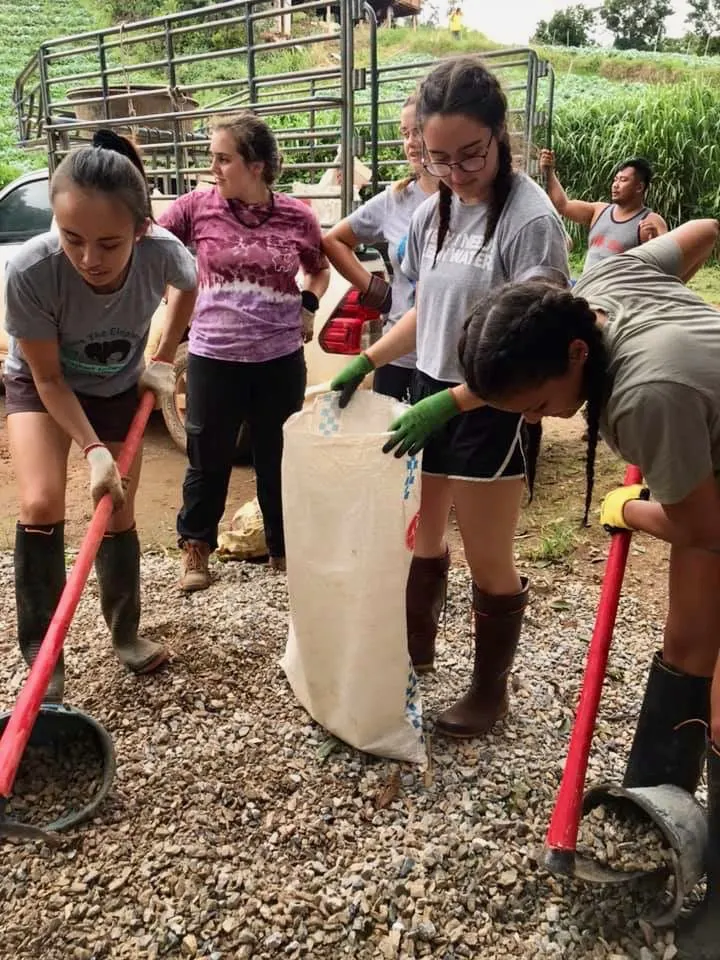
TT: Wow! Tell us more about your travels.
S: I recently returned from Thailand with a group of students from Chico, CA. Our service there was focused on education (we taught basic English in Hill Tribe schools) and elephant rescue.
Thailand is one of my favorite places to learn and serve. The rich culture, beautiful scenery, and kind people make it an ideal location for students and educators. We began our two-week journey in Chiang Mai where we explored temples in the company of a former Buddhist Monk.
Not only did we enjoy the beautiful architecture of the wats and pagodas, we learned a tremendous amount about Buddhism and its cultural impact in Thailand: an excellent supplement to the coursework offered online.
While in Chiang Mai, we also explored night markets, art museums, and even visited the local women’s prison for a massage via a government sponsored social program. The idea is that the women learn a marketable skill so that when they’re released they can support themselves and their children. The program is innovative AND successful. The prison/government has even opened spas in Chiang Mai to create jobs, post-release. Pretty cool!
Other culturally immersive activities included cooking lessons, a homestay in the countryside, a bike ride through the rice paddies, and trekking through Doi Inthanon National Park.
Our second week in Thailand was totally dedicated to service. For this arm of the program, we drove several hours into the hills of Thailand and spent the week living and working among the oldest Hill Tribes in Thailand, the Karen and the Hmong. We taught English in the local primary schools and served on an elephant rescue project.
Essentially, the Hmong and Karen people, due to economic necessity, had been renting their elephants to the logging industry, circuses, and tourism. In these environments, the elephants were horribly mistreated. Through an innovative rescue program, the elephants have been returned to their owners and are now freely roaming the jungle.
It is a beautiful thing to see and experience. As volunteers in the project, we fed the elephants, helped in the garden (where nutritious food is grown to feed the elephants and their mahouts), and assisted with paving a road to ease the delivery of volunteers and supplies to the project.
At the end of our time with the Hill Tribe people, the local Shaman came to our village and blessed our group with a prayer of thanks for our help and protection for our return home. Incredible!!!
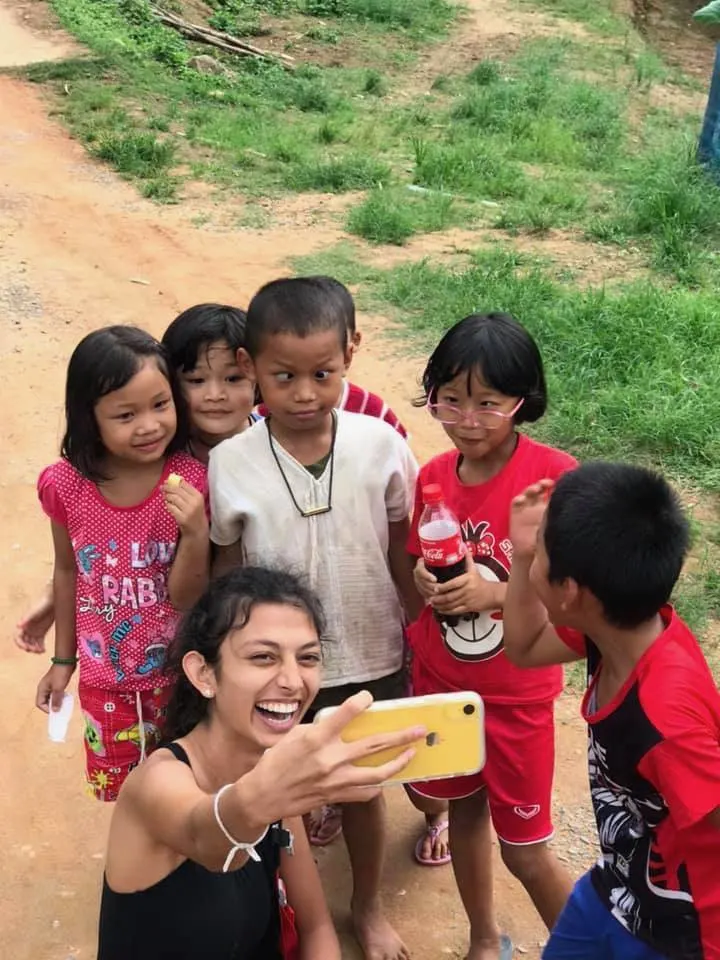
TT: Amazing experiences. Now, how do you find your travel opportunities?
S: As the Director of Global Studies, I have multiple connections to agencies and organizations offering travel opportunities to students and educators. My inbox stays full. However, I began working with Bright Light Volunteers (BLV) in 2016. While I have worked with other orgs since then, most of my programs are currently organized by BLV.
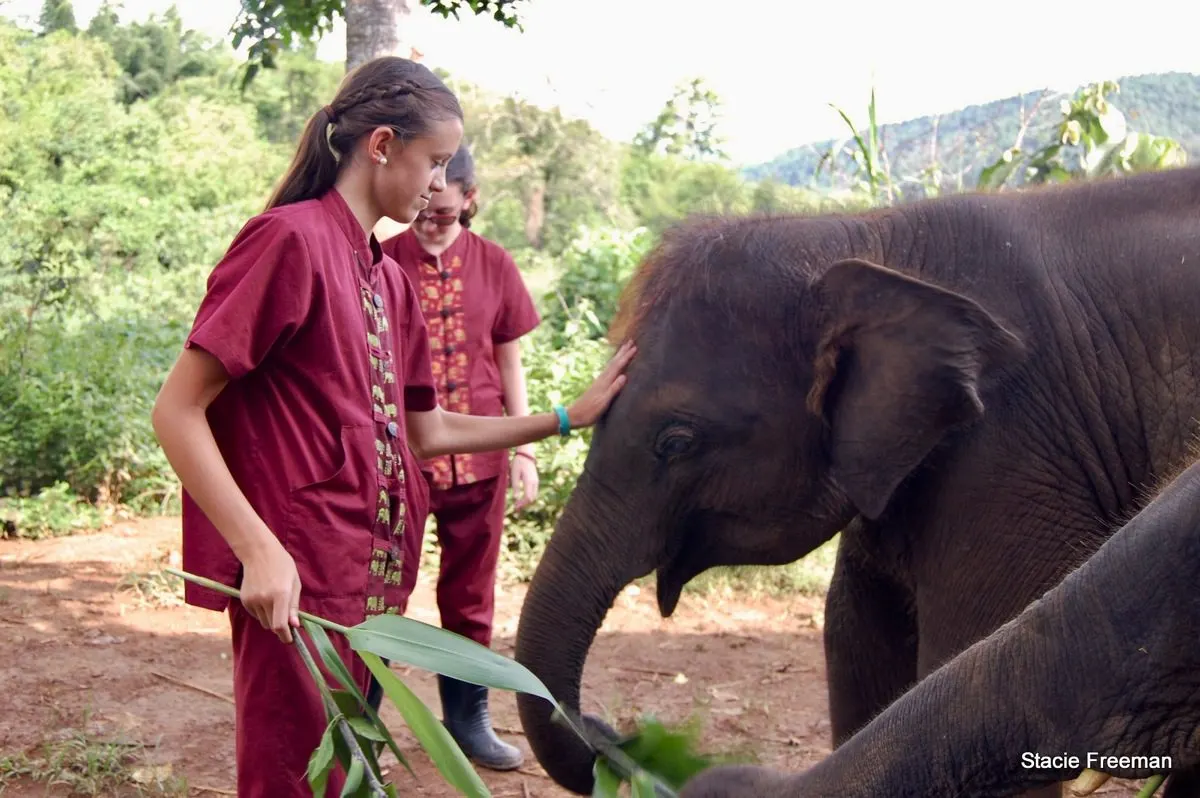
TT: I see. How did you find the money to fund your travel?
S: I plan my programs one year in advance. This gives students and their families time to fundraise. Some of my students secure part-time employment to pay for the experience, others request funding from clubs like Rotary and Lions. A few have had success securing scholarships through orgs like SYTA as well. Where there’s a will, there’s a way.

TT: True! Tell us one moment from your travels that was particularly powerful.
S: This summer, I had the opportunity to meet Lek Chailert, the founder of Elephant Nature Park (ENP). She is a tiny but MIGHTY woman. She rescued her first elephant 20 or so years ago. Today, there are over 80 elephants being cared for at ENP. In addition to the rescued herd, she and her staff care for over 500 dogs and cats at the park.
This enormous project started with one woman on one mission. Today, her voice and hard work for the voiceless, abused animals she rescues is heard around the world. In her presence, I was reminded that no matter how big the world’s problems, we ALL have the power to leave this place better than we found it.

TT: So beautiful. How have your travels impacted you in your career, and how have your travels impacted you as a person?
S: My travel informs everything I do. Experiencing other people, from other places has improved my understanding of my role as a global citizen and my responsibility for developing solutions to global social problems.
I see this in my students as well. On post-service surveys, 100% of my students report that the experience has contributed positively to their appreciation for and understanding of other people and cultures and that their awareness of global social problems and solutions has been improved.
They also report having a better understanding of their role as global citizens and of the interconnection between the US and other countries and cultures. As an educator, reading those surveys has been highly impactful and on hard days, keeps me going.
TT: Amazing. What advice do you have for teachers who are dreaming of travel, or travelers dreaming of teaching?
S: Be persistent! If your administration is hesitant or resistant, take baby steps. I started by volunteering with students close to home, in our local community. Then, I began organizing service programs across our state. My next move was to organize service projects across the country.
Finally, seven years in, my proposal to travel with students to Costa Rica was approved. Sometimes, it takes time. Don’t give up! “Water cuts through rock not because of its strength but because of its persistence.”
TT: Thanks so much, Stacie! Readers, what comments or questions do you have?
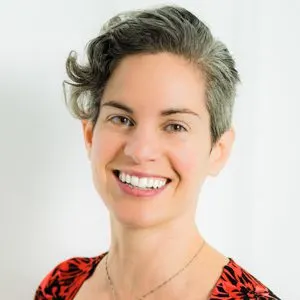
The author, Lillie Marshall, is a 6-foot-tall National Board Certified Teacher of English from Boston who has been a public school educator since 2003. She launched TeachingTraveling.com in 2010 to share expert global education resources, and over 1.6 million readers have visited over the past decade. Lillie also runs AroundTheWorld L.com Travel and Life Blog, and DrawingsOf.com for educational art. Do stay in touch via subscribing to her monthly newsletter, and following @WorldLillie on social media!
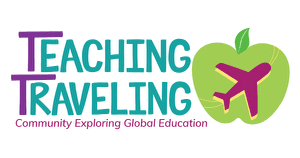
Jassy
Sunday 29th of December 2019
Awesome read!!